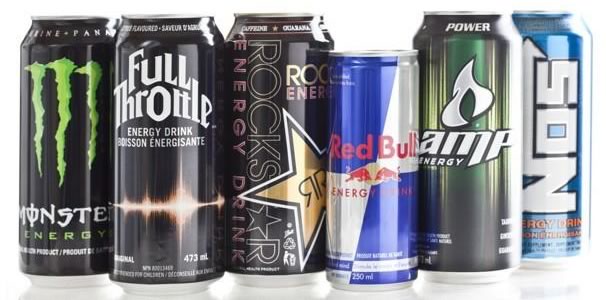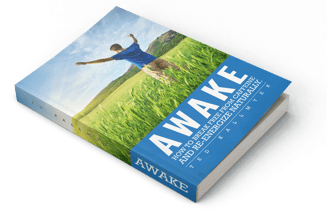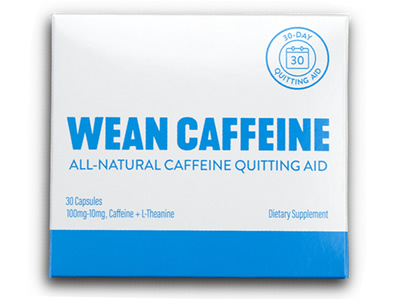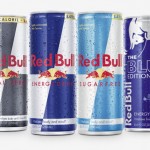Energy Drink Side Effects
Energy drinks can have potential side effects if not consumed responsibly or as directed.

Because of the vast array of ingredients in Energy Drinks, it may make them more likely to produce side effects than beverages containing just caffeine alone.
What’s worse, the safety of energy drinks has become a major issue as consumption has increased among children and teens.1
Top 10 Energy Drink Side Effects
Recent research in Australia 2 has highlighted the risks with over-consumption of energy drinks. This data was gathered from 7 years of calls to the Australian Poisons Center.
Listed in order of most common to least common:
- Palpitations / tachycardia
- Tremor / shaking
- Agitation / restlessness
- Gastrointestinal upset
- Chest pain/ischemia
- Dizziness/syncope
- Paresthesia (tingling or numbing of the skin)
- Insomnia
- Respiratory distress
- Headache
The Center for Food Safety Adverse Event Reporting System (CAERS) received over 140 complaints about adverse side effects from 5 Hour Energy, Monster, and Rockstar over the last 10 years. Some of these resulted in hospitalization and death. See the report here.
If you’ve experienced other energy drink side effects tell us about them in the comments below.
Energy drinks contain supplements, herbs, and vitamins and are required to list warnings on the label about consuming more than the recommended serving.
Potential Problems from the Specific Ingredients
In moderation most people will have no adverse, short-term side effects from drinking an energy drink, however, the long-term side effects of consuming energy drinks aren’t fully understood as of yet.
However, if you have reached a state of dependence on energy drinks, then it’s time to start considering products specifically designed for helping you kick caffeine without withdrawal. Of those out there, we endorse Wean Caffeine which is highly effective and inexpensive.
Let’s take a look at the most common energy drink ingredients and list the potential side effects that could result from ingesting too much.
Caffeine
This is the most common energy drink ingredient and one of the most widely consumed substances in the world.
Caffeine tolerance varies between individuals, but for most people, a dose of over 400mg/day may produce some initial symptoms: restlessness, increased heartbeat, and insomnia.
Higher dosages can lead to:
- Increased blood pressure
- Heart palpitations
- Anxiety and panic attacks
- Gastrointestinal disturbance (diarrhea)
- Increased urination
- Dizziness, irritability, nausea, nervousness, jitters
- Allergic reactions can include; rash, hives, itching, difficulty breathing, tightness in the chest, swelling of the (mouth, face, lips, or tongue), diarrhea, shakiness, trouble sleeping, vomiting
- Headaches and severe fatigue from withdrawal
- Painful withdrawal symptoms
(Read more about caffeine overdose here)
Caffeine can be found in other natural ingredients such as guarana, green tea extract, and coffee extract or can go by many other names , so be aware of this when reading energy drink labels.
Please consult the caffeine database for an exhaustive list of caffeine in energy drinks (and other drinks). This is updated weekly.
Adrenal Fatigue
There is debate as to whether adrenal fatigue is a real disorder, but here’s what some think happens.
Some people can become tired even after consumption of caffeine. This is believed to be a symptom of adrenal fatigue where the body’s aadrenalinesystem has become overtaxed by the constant high caffeine intake.
The solution is not to increase caffeine even more – but to reduce, detox, and get the adrenal glands back to a healthy state.
Remember, it’s hard to pinpoint an exact safe dose because it varies from person to person and according to a person’s tolerance.
See our Caffeine Safe Dose Guide here.
Between 500 milligrams to 1000 milligrams in a 24 hour period will probably lead to some of the more severe side effects .
Sugar
Most energy drinks are high in sugar in the form of high fructose corn syrup and/or cane sugar. Some use creative names to make their version of sugar seem “healthier”, like “natural cane juice”.
- High sugar drinks are linked to the obesity.
- Sugar causes tooth decay
- Increases risk of type 2 diabetes .
- The sugar in energy drinks causes blood sugar and insulin spikes, which later result in a “crash-like” feeling.
- Sugar is also somewhat addictive.
Taurine
No side effects from the Taurine3 in energy drinks have been documented. Some countries (France, Denmark, and Norway) originally banned energy drinks because of their taurine content, but have since accepted that taurine consumption is safe based on the evidence to date .
The amount placed in energy drinks is well below what would be needed for therapeutic benefits or for any potential side-effects.
B Vitamins
- More than 35mg of Niacin (B3) can cause flushing of the skin. Intake of 3000mg or more can result in liver toxicity. The British Journal of Medicine recently published a case study of a man who consumed about 5 energy drinks a day for a period of three weeks. This caused toxic levels of niacin to build up in his body, leading to nonviral hepatitis. The unidentified energy drink in question supplied 200% of the RDA of B3. A summary is found here.
- More than 100mg of B6 can cause sensory nerve problems (burning sensation) or skin lesions.
Inositol
No major side effects have been reported, but it could cause dizziness, tiredness, headaches and an upset stomach. (src.) Ingesting large quantities has been linked to diarrhea . Large doses have been used to treat certain psychiatric disorders.
Ginseng
- Some studies have linked it to sleeplessness, while others refute this.
- Other possible symptoms include; low blood pressure, edema, palpitations, tachycardia, cerebral arteritis, vertigo, headache, insomnia, mania, vaginal bleeding, amenorrhea, fever, appetite suppression, pruritus, cholestatic hepatitis, mastalgia, euphoria, and miscarriage.
Glucuronolactone
While no side effects have been reported, there’s still debate on its safety.4 Many countries including Canada, England, Germany, and France have concluded that it is not a safety concern .
Artificial Sweeteners
If you drink sugar-free energy drinks you may be consuming any number of artificial sweeteners. There is always debate around the negative health effects of these (particularly aspartame5).
However, all major health institutions regard them as safe.
Ginkgo Biloba
Gingko is a herb, and can cause some minor side effects in some people6:
- nausea, diarrhea, headaches, dizziness, heart palpitations, and restlessness.
- Can interact with other medication such as blood thinners and anti-depressants.
- A recent study found that ginkgo caused thyroid cancer in rats.
L-Carnitine
Too much of this amino acid can cause vomiting, nausea, headache, diarrhea, stuffy nose, restlessness and sleeping difficulty.7
L-Theanine
This amino acid is derived from green tea and many energy drinks and shots have begun putting “green tea extract” in their products.
It produces a different type of alertness than caffeine and there hasn’t been any scientific evidence of it causing adverse side effects. Some have reported feeling light-headed when consuming a dose of more than 300mg of L-Theanine.8
What is Safe For You?
Energy drinks probably shouldn’t be a staple of anyone’s diet and coffee is certainly a healthier source of caffeine.
However, despite a number of alarming reports of overdose in recent years, for most people energy drink consumption is fine in moderation.
Many reported side effects are anecdotal – being reported from patient’s records. So, it’s hard to say which ingredient actually caused the problems if the patient was ingesting several combinations of these at one time.
Be Careful of Pre-existing Conditions
If you or your child has a pre-existing heart condition of any sort – they should not be consuming energy drinks.
In general, it is better to avoid the larger drinks (i.e. Mega Monster has a massive 240mg caffeine in its 24 fl oz giant can) and stick to smaller 8oz cans.
If people drink energy products responsibly and use energy drinks occasionally, then most will likely avoid any of the energy drink side effects.

Get Help Quitting Caffeine
Reduce your caffeine intake without pain and discomfort.
Download our FREE ebookReferences
- 1. Seifert, S. M., Schaechter, J. L., Hershorin, E. R., & Lipshultz, S. E. (2011). Health effects of energy drinks on children, adolescents, and young adults. Pediatrics, peds-2009. study
- 2. Gunja, N., & Brown, J. A. (2012). Energy drinks: health risks and toxicity. Medical Journal of Australia, 196(1), 46-49. study
- 3. Huxtable, R. J. (1992). Physiological actions of taurine. Physiological reviews, 72(1), 101-163. study
- 4. Eisenberg, F., & Field, J. B. (1956). The enzymatic hydrolysis of glucuronolactone. Journal of Biological Chemistry, 222(1), 293-300. study
- 5. Wurtman, R. J. (1983). Neurochemical changes following high-dose aspartame with dietary carbohydrates.[letter]. New England Journal of Medicine (USA). study
- 6. Biloba, G. (1999). Herbal remedies: adverse effects and drug interactions. American family physician, 59(5), 1239-1244. report
- 7. http://aminoacidstudies.org/l-carnitine/
- 8. http://www.drugs.com/npp/l-theanine.html
- The Mayo Clinic
- The National Institutes of Health
- http://www.ncbi.nlm.nih.gov/pmc/articles/pmc2966367/






